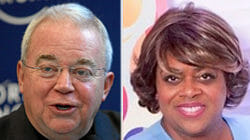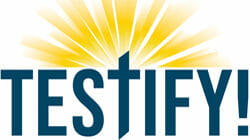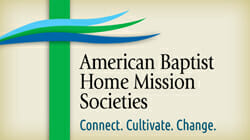Closing Day at Space for Grace
On the final day of Space for Grace 2018, interactive learning opportunities continued, and intercultural Communion was featured.
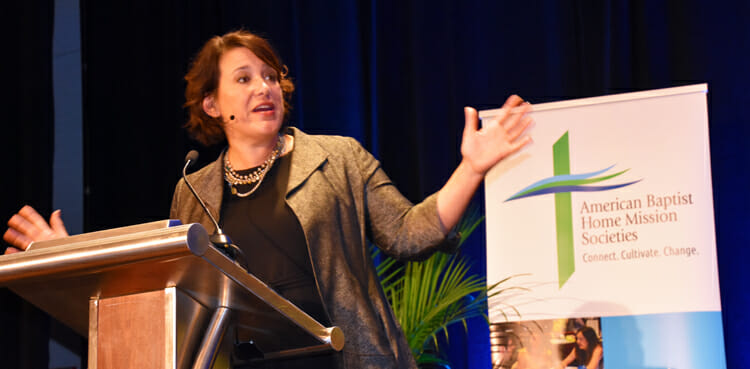
“We have a crisis of epic proportions in this country,” said the Rev. Dr. Amy Butler (above), senior minister, The Riverside Church, New York City, during evening worship. “Will the church finally, for all that is holy, stand up and do her work?”
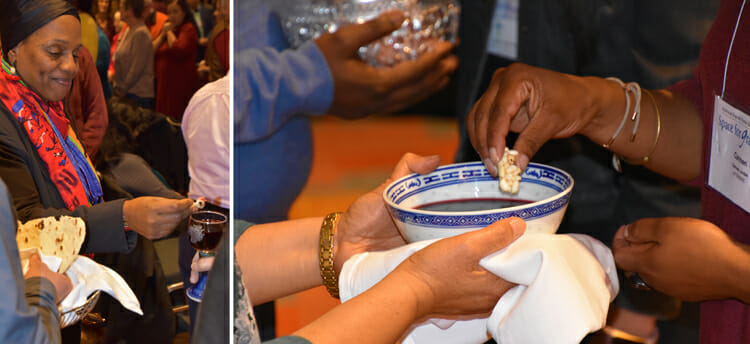
“Jesus has created a space for grace for you and for everyone today at his table,” said the Rev. Salvador Orellana, American Baptist Home Mission Societies’ (ABHMS) director of Intercultural Ministries and the “Rebuilding, Restoring, Renewing Puerto Rico” initiative, at intercultural Communion (above left and right) during evening worship. “Please step out of your comfort zone and choose from one of five ethnically diverse Communion tables to celebrate our God, who is alive within the rich ethnicity and heritage representative of our American Baptist family.”
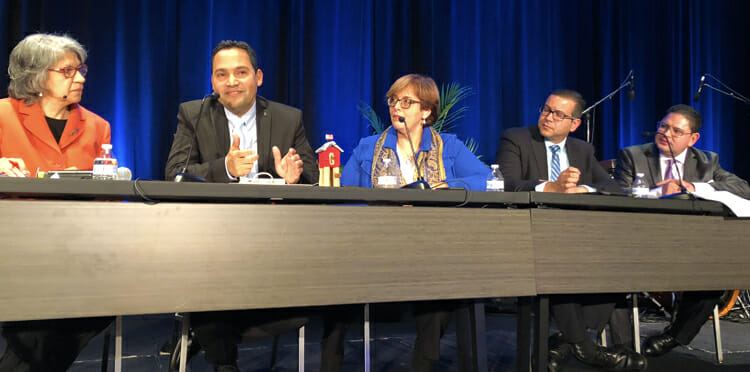
“It has truly only been through the church that Puerto Rico has received the help it needs to recover,” said the Rev. Edgardo M. Caraballo (second from right), executive minister of Iglesias Bautistas de Puerto Rico, during a “Rebuilding, Restoring, Renewing Puerto Rico” panel presentation (above) at morning worship. Other panelists were Josué D. Gómez-Menéndez, Esq. (second from left), president of American Baptist Churches USA; the Rev. Laura Ayala (center), senior pastor of First Baptist Church of Rio Piedras, Puerto Rico; and ABHMS’ Rev. Salvador Orellana (far right). Moderator was the Rev. Dr. Elizabeth Conde-Frazier (far left), coordinator of Relations for Theological Entities at the Association of Hispanic Theological Education.
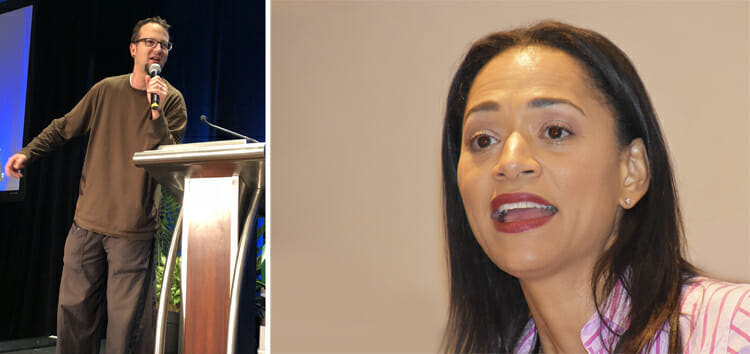
“Donald Trump didn’t change America, he revealed America—white evangelical America,” said morning homilist Shane Claiborne (above left), founder of The Simple Way, Philadelphia, and co-director of Red Letter Christians.
During a luncheon presentation, Jennifer Jones Austin, Esq. (above right), CEO of the Federation of Protestant Welfare Agencies, New York City, shared about finding joy in the crisis of her 2009 leukemia diagnosis. “I have a praying husband,” said Austin, who is also the daughter, granddaughter and great-granddaughter of Baptist preachers. “And he knew that the doctors may say one thing but that the Lord has the last word.”

“As people struggle with asking where is God in the midst of pain and suffering, religion offers a constructive perspective, religion offers hope, religion offers reasons for living and a purpose for life,” said the Rev. Dr. Delois Brown-Daniels (above left), a board-certified chaplain and former vice president of Advocate Health Care, Downers Grove, Ill., during her “When Life Doesn’t Seem Worth Living: Congregations’ Role in Suicide Prevention” workshop.
“To understand our own behavior, it is helpful to look at our nuclear family and the patterns of behavior that existed,” said Dr. Greg Johnson (above right), senior pastor of Cornerstone Community Church, Endicott, N.Y., in his “Healthy Transformational Leadership” workshop.
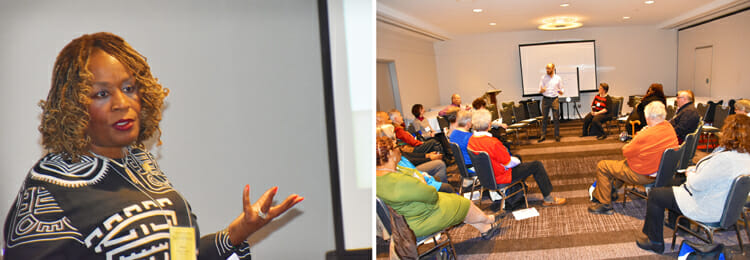
During her “Justice for Rizpah’s Children” workshop, the Rev. Dr. Marilyn P. Turner-Triplett (above left), director of ABHMS’ Healing and Transforming Communities—of which the Rizpah’s Children initiative is part—presented sobering statistics about America’s children in poverty. “If you want to do something to make a difference in the lives of children in poverty and you want to make it strategic, you need to partner with someone else,” she said. “We cannot do it alone. It’s too big.”
In the “Music that Makes Community: Singing Together Heals the World” workshop (above right), “paperless singing” was taught as a spiritual discipline and a contemplative practice that creates ripple effects in all areas of life. Participants sang, “I am here in the heart of God…God is here in the heart of me.” One participant said, “The more we sang, I felt like we were reaching out to God.”
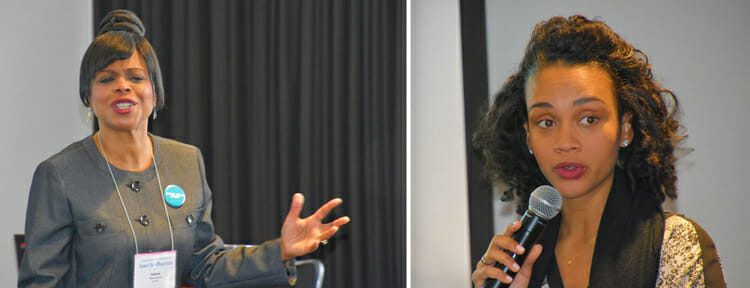
In her “Leadership Lessons for the Good” workshop, the Rev. Dr. Debora Jackson (above left), director of Lifelong Learning at Yale Divinity School, said that leadership characteristics can go unrecognized because of an individual’s gender, age or race.
In the “Engaging Faith Leaders in the Fight to End Human Trafficking/Modern-day Slavery” workshop, Ouleye Warnock (above right), Atlanta’s senior human trafficking fellow, offered ideas for churches that want to do their part in combating human trafficking. They include holding donation drives for toiletries and other personal items; lobbying for safe harbor bills; offering space for community trainings; and collecting an offering.


